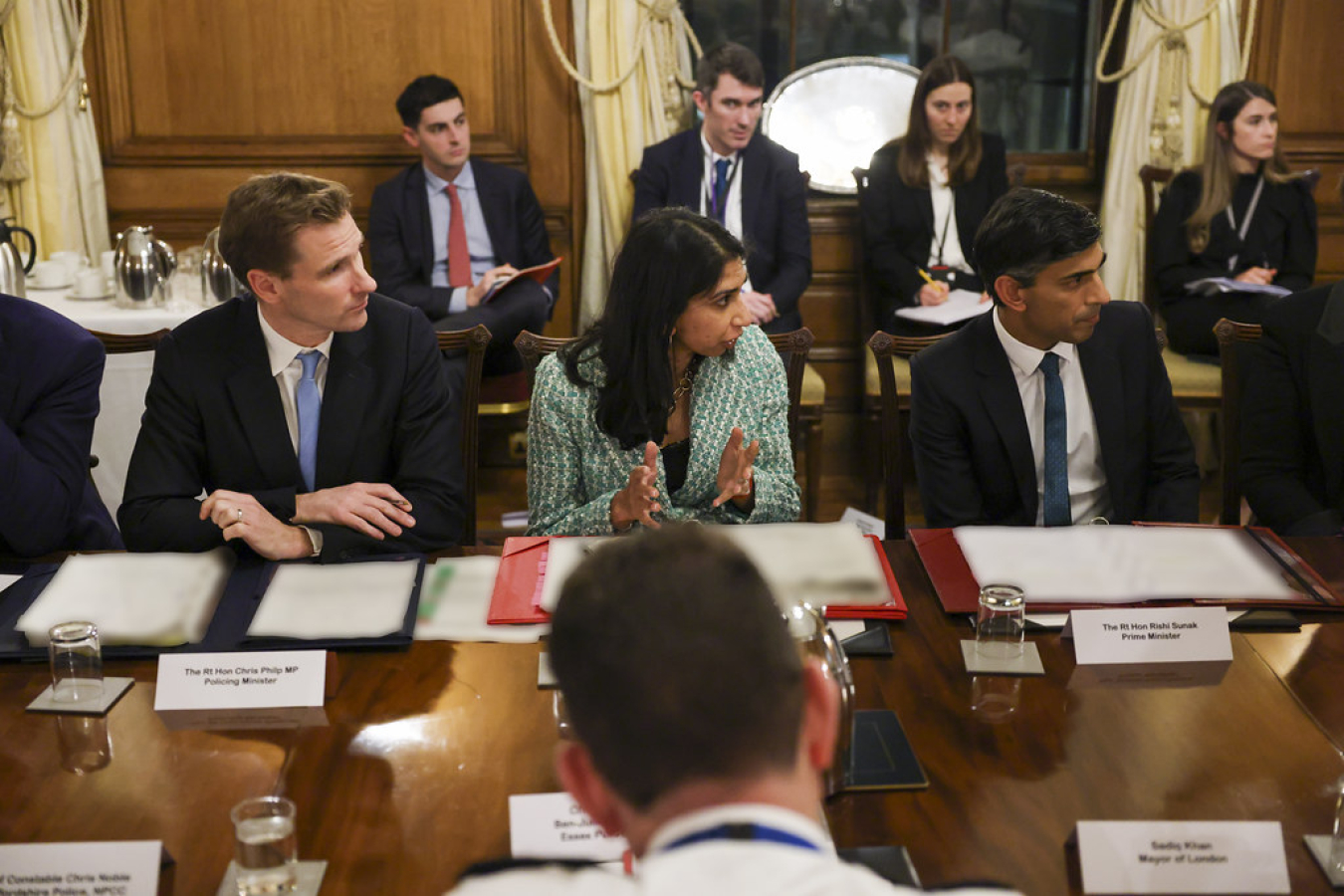Support migrant centric journalism today and donate

By Sanwar Ali:
Index:
- Introduction
- Overview of the New UK Visa Restrictions
- Impact on Students
- Impact on UK Universities
- Impact on the UK Economy
- Relevance to Sponsor Licence and Skilled Worker Visa
- Migration and Immigration Concerns
- Tuition Fees for Overseas Students
- UK Visa Fees
- Conclusion
1. Introduction
The UK government has recently announced new restrictions on the UK visa system, which will directly impact overseas students and their family members. These new regulations are aimed at reducing immigration and addressing concerns about the increasing number of student dependants arriving in the country. This article will analyze the implications of these changes on students, UK universities, and the overall economy, as well as discuss the relevance of the sponsor licence and skilled worker visa in this context.
2. Overview of the New UK Visa Restrictions
Starting from January 2024, foreign postgraduate students on non-research courses will no longer be allowed to bring their family members to the UK. This change is expected to help reduce the number of visas granted to dependants, which has seen a significant increase in recent years. In 2021, a total of 135,788 visas were granted to dependants of foreign students, a substantial rise from 54,486 in 2020 and 19,139 in 2019.
The new restrictions apply to partners and children of postgraduate students who are not enrolled in research programs. These family members will no longer be eligible to apply for a UK visa to live in the country during the course of the students' studies.
3. Impact on Students
The new UK visa regulations are likely to have a significant effect on students coming to the UK for higher education. For many international students, the ability to bring their family members along has been a crucial factor in their decision to pursue their studies in the UK. The prospect of being separated from their loved ones may deter some students from considering the UK as their study destination.
Furthermore, the absence of family support can make it more challenging for students to cope with the pressures of higher education. Family members often provide emotional support, financial assistance, and a sense of belonging, all of which are essential for a successful educational experience. Without this support network in place, some students may struggle to adjust to their new environment and may even experience feelings of isolation and loneliness.
4. Impact on UK Universities
UK universities are also expected to feel the impact of the new visa restrictions. The higher education sector in the UK relies heavily on the fees paid by international students, many of whom come from non-EU countries. If the new regulations discourage a significant number of students from choosing the UK as their study destination, universities may experience a drop in their revenue.
Moreover, the restrictions may have a disproportionate impact on specific universities and courses. For instance, institutions with a significant number of postgraduate students from non-EU countries may face a more considerable decline in enrolments. Similarly, non-research postgraduate courses may see a decrease in demand as students opt for research programs to maintain their eligibility to bring family members to the UK.
5. Impact on the UK Economy
The new UK visa restrictions are also likely to have repercussions for the broader UK economy. International students and their dependants contribute significantly to the UK's economy through tuition fees, living expenses, and other expenditures.
As mentioned earlier, tuition fees for overseas students are generally higher than those for domestic students. A decline in the number of international students due to the visa restrictions could lead to a decrease in income for UK universities, which in turn could affect their ability to invest in research, infrastructure, and other essential activities.
In addition, the spending of international students and their dependants contributes to the local economy, particularly in areas with a high concentration of universities and students. A decline in their numbers could lead to reduced demand for housing, retail, and other services, which could have a knock-on effect on local businesses and employment.
6. Relevance to Sponsor Licence and Skilled Worker Visa
The new UK visa restrictions for student dependants may also have implications for the UK's sponsor licence system and skilled worker visa program. If there are fewer people such as dependents of student visa holders able to work freely in the UK, more employers will need a sponsor licence, and will need to sponsor migrant workers. Then pay high UK visa fees to bring in overseas workers.
7. Migration and Immigration Concerns
The UK government's decision to implement new visa restrictions for family members of students is primarily driven by concerns about migration and immigration levels. The Conservatives have previously pledged to reduce net migration to below 100,000 per year, a target they have struggled to achieve.
While the new restrictions are expected to help lower migration levels, it remains unclear to what extent they will impact official migration statistics. Students and their dependants who come to the UK for less than a year are not counted in the official figures, making it difficult to determine the true effect of these measures on migration levels.
8. Tuition Fees for Overseas Students
As mentioned earlier, tuition fees for overseas students in the UK are typically higher than those for domestic students. International students often pay fees that are several times more than their British counterparts, making them a crucial source of revenue for UK universities. The potential decline in international student numbers due to the new visa restrictions could lead to a significant loss of income for these institutions.
9. UK Visa Fees
UK visa fees for students and their dependants are also relatively high. Students coming to the UK with a visa must provide documentation proving their relationship with their dependants, who in turn must pay a visa fee of £490. Additionally, dependants are required to pay the immigration health surcharge, an annual contribution of £470 towards NHS services. The new visa restrictions may result in a decline in visa fee income for the UK government.
10. Conclusion
In summary, the new UK visa restrictions for family members of overseas students have the potential to affect students, universities, and the broader UK economy. The changes may deter some students from considering the UK as their study destination and could lead to a decline in enrolments at UK universities, particularly for non-research postgraduate courses. The restrictions may also have implications for the UK's sponsor licence system and skilled worker visa program, as well as for migration and immigration levels.
While the UK government's decision to implement these restrictions is primarily driven by concerns about migration, it is essential to consider the potential consequences for the higher education sector and the broader economy. It remains to be seen whether the benefits of these measures in terms of reducing migration will outweigh the potential costs to the UK's international reputation and economic prosperity.
Workpermit.com can help with Sponsor Licences
If you need help with employing Skilled Workers and help to apply for a Sponsor Licence, including complying with your Sponsor Licence obligations, Workpermit.com can help.
For more information and advice please contact us on 0344 991 9222 or at london@workpermit.com





















